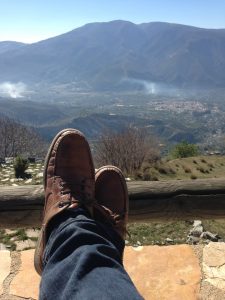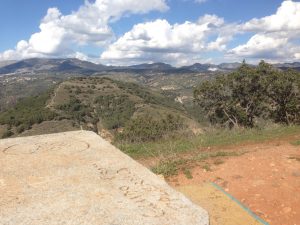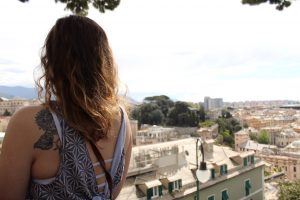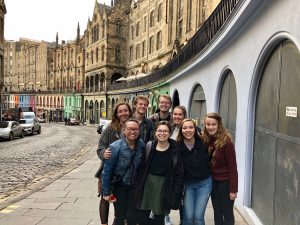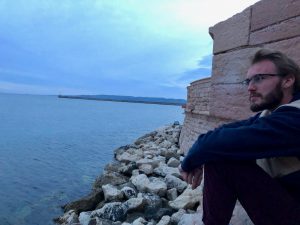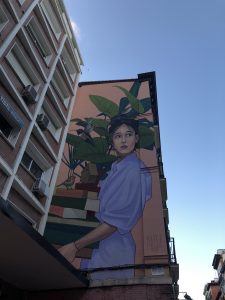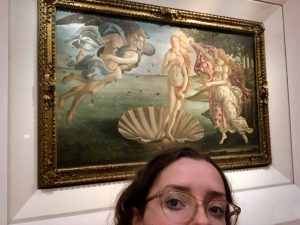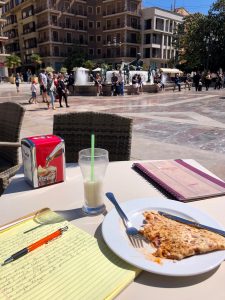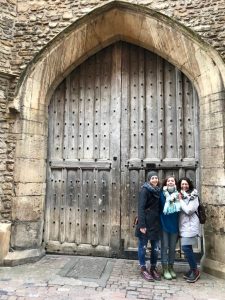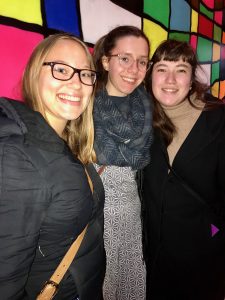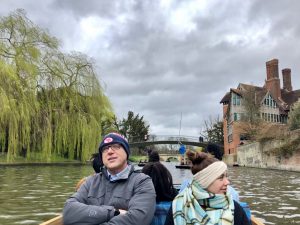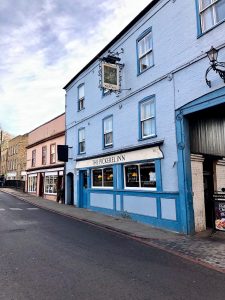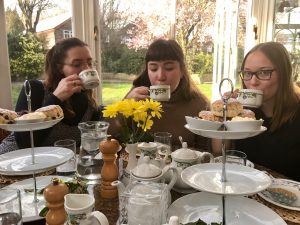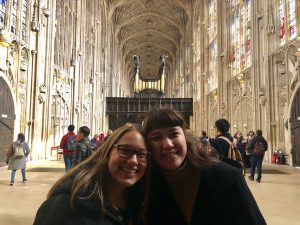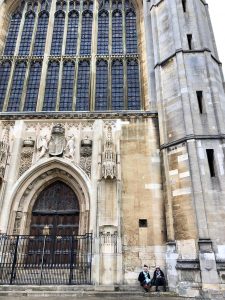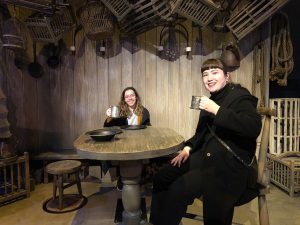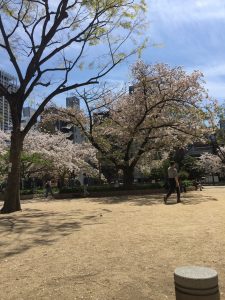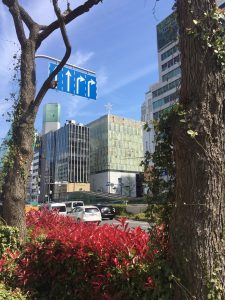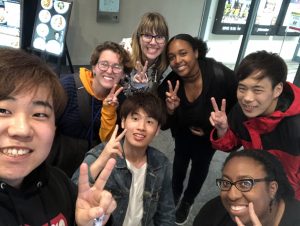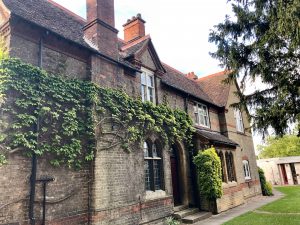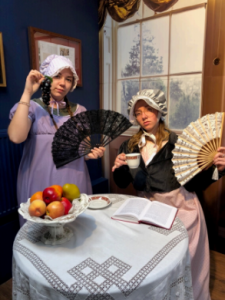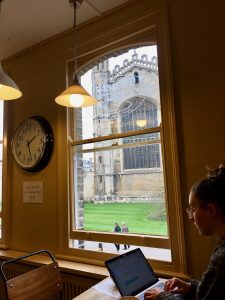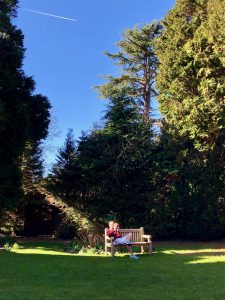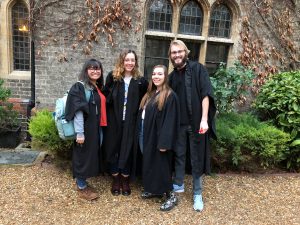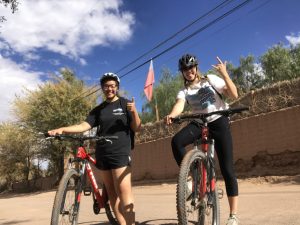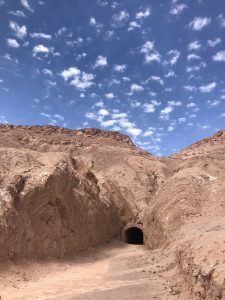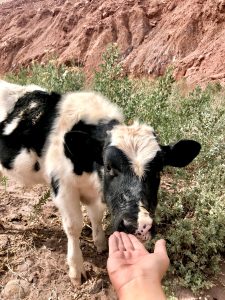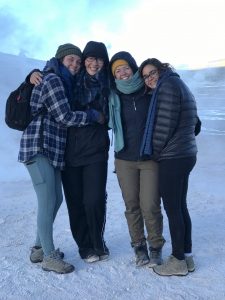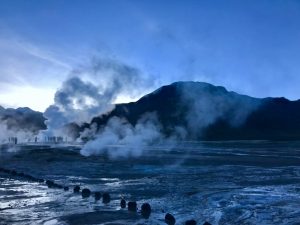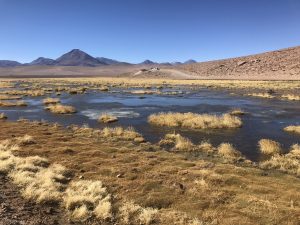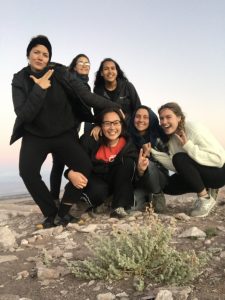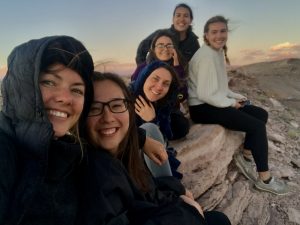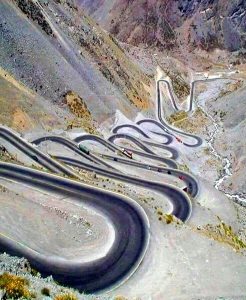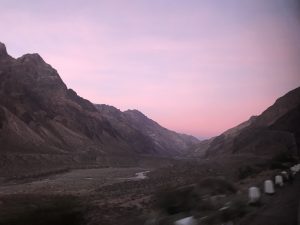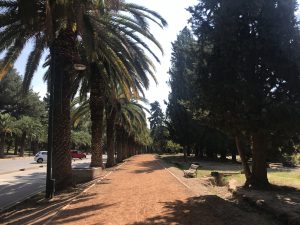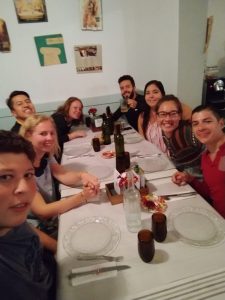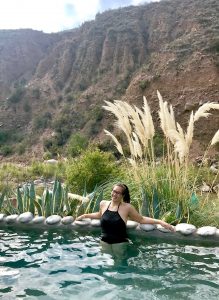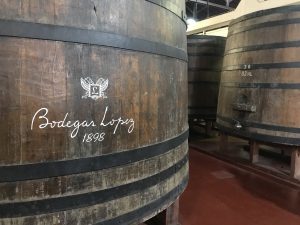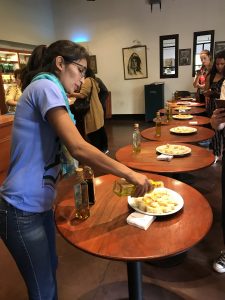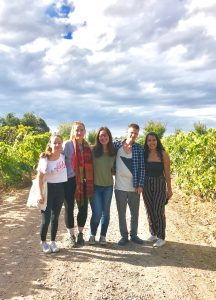Author: Emily Neuharth
Location: Cambridge, England
Pronouns: She/Her/Hers
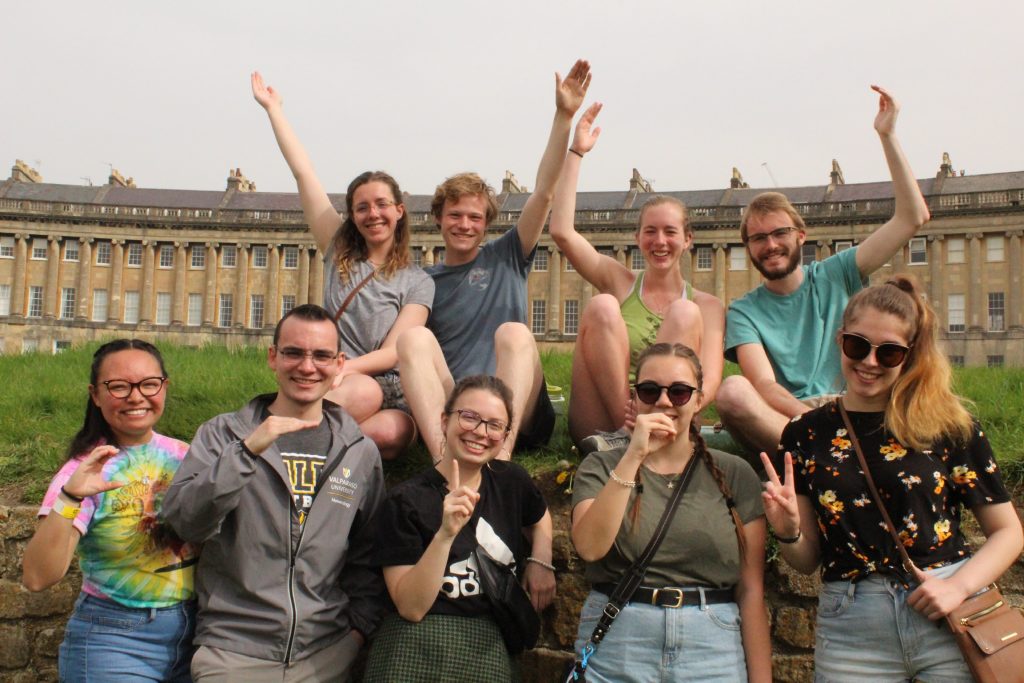
VU C-102 in Bath, England (Get it??)
Out of the nine Valpo students living in Cambridge this Spring 2019 semester, only two people were close friends before we got here, and a few of us were acquaintances or had environment-specific relationships with each other.
Four months later, and I think it’s safe to say that our closeness has exceeded the magical, inevitable bond that forms between people placed outside of their comfort zones and natural environments; we’ve really become a family.
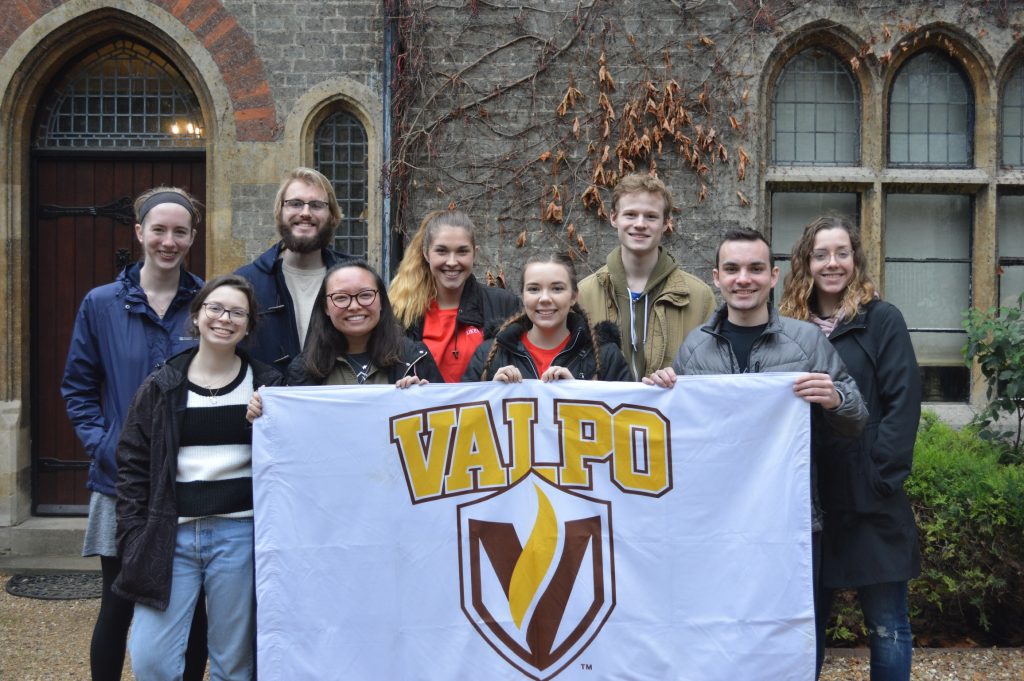
Our first picture taken together in front of Westfield House (it feels like this photo was
taken years ago).
We’ve celebrated our highs together— like 21st birthdays, finishing final papers, making British friends, attending each other’s Ultimate Frisbee games and choir concerts, cheers-ing to getting jobs and leadership positions for next year, and Wordfest awards. We’ve supported and leaned on one another during the lows too— from homesickness, to physical sickness, break-ups and broken phones (multiple phones), procrastinated deadlines and everything that falls in between.
We’ve also learned how to survive with each other— it’s no small feat to go from not knowing each other to spending literally all of your time with 8 other people. Perhaps needless to say, we’ve all grown in communicating our needs and feelings, how to forgive, and how to practice empathy.
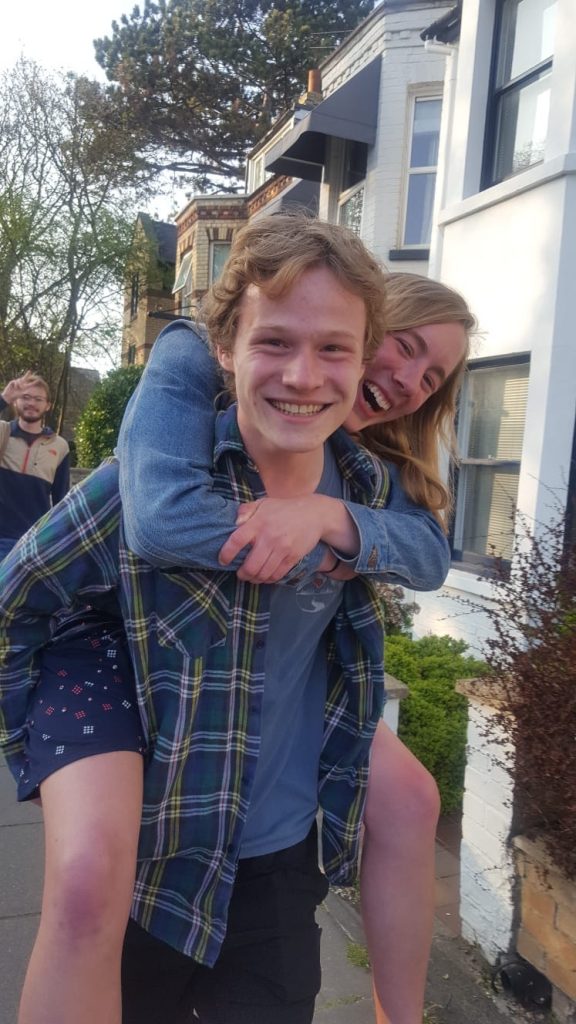
Nolan, Cami, and Eric in front of our house
As the semester is drawing to a close, our cohort has become an inextricable part of our study abroad experience. The thought of going home and not being able to accurately share with others the depth of these memories and relationships that we’ve so quickly formed is a stressful idea…The quirkiness and inside jokes, the way we’ve so naturally picked up each other’s mannerisms, and so much more. So, in an attempt to capture just a glimpse into our silly, creative, loving family, I’ve asked each cohort member a couple of questions.
Without further ado, it is my pleasure to introduce to the world Cambridge’s 102nd Cohort (in order of our favorite colors on the ROYGBIV spectrum):
Emily Neuharth
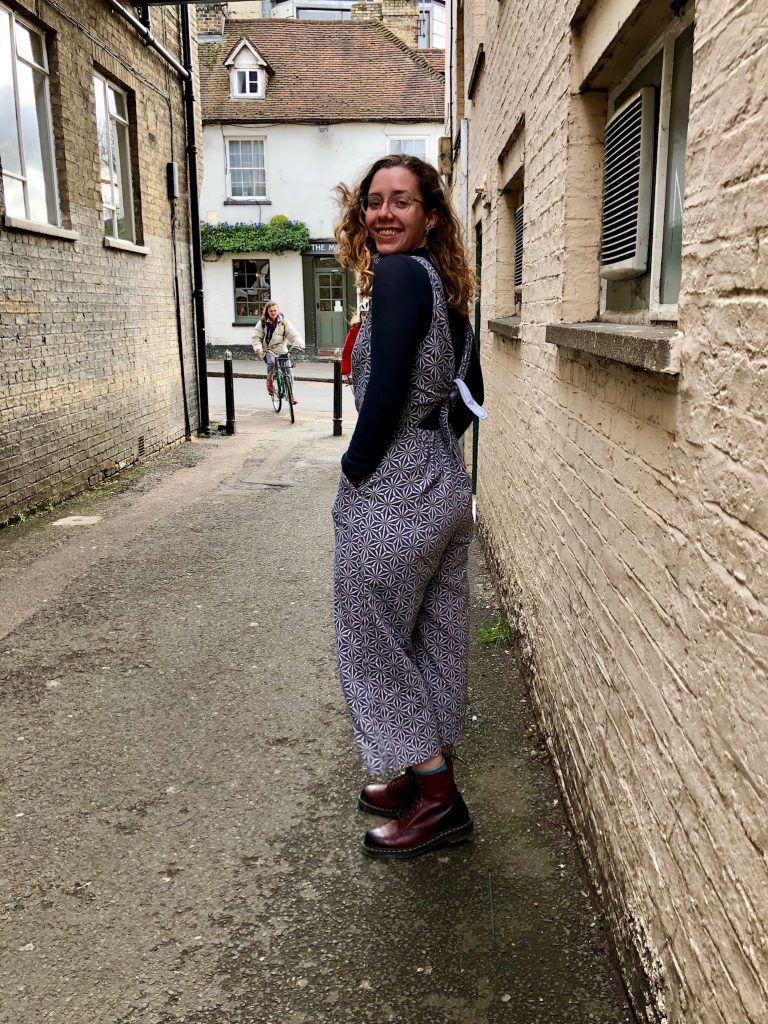
Emily in Keukenhof, Netherlands
• Favorite color: Pink
• Nickname(s): Em, Maurice, Groovy Cat
• Enneagram Type: 4w3
• Astrology: Libra Sun, Pisces Moon, Leo Rising
• Advice: A suggestion I’d give to future cohort members would be to remember that the advice, “Make the most out of your time,” is going to look different for each person— try not to compare your study abroad experience to others (whether that be your peers at other programs, past Cambridge students, or your fellow cohort).
• Memory: All of our natural, silly, family-moments that we’ve so luckily grown used to…like binge-watching Hell’s Kitchen and Queer Eye, having dance parties in the kitchen, Face-Timing each other to get them to come downstairs and hang out, forcing each other to watch each other’s favorite movies, having photo shoots, working on procrastinated papers and presentations together, roasting each other, and adopting each other’s phrases and habits.
• Growth: I’ve become more comfortable in spending my time alone and can better see the value in it. I’ve realized that I have a lot farther to go in my
growth as a person— and have learned that I was definitely in denial and hiding some things from myself. I think that in some ways I’ve become less sure of my identity after this semester, but I think it’s a step in the right direction. If I hadn’t had this experience than I might never have been forced to reckon with these hard things, and push myself deeper to understand who I am and who I want to become.
Elizabeth Palmer
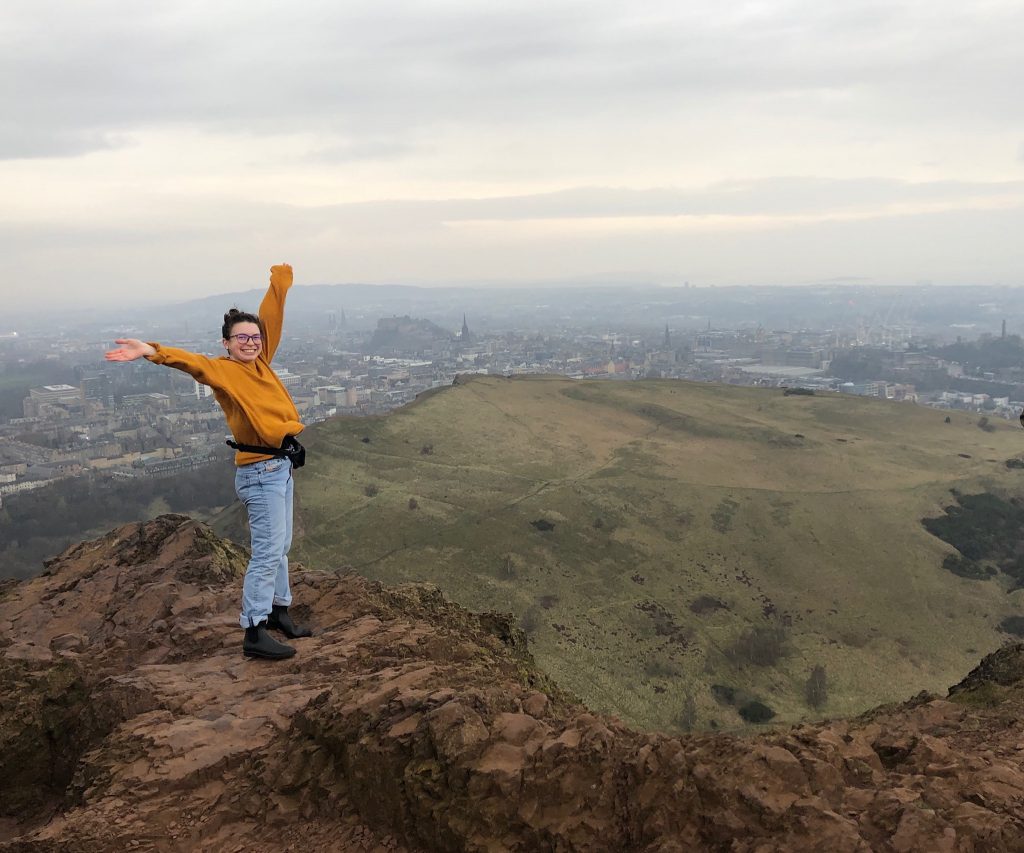
Liz at Arthur’s Seat in Edinburgh, Scotland
• Favorite color: Peach
• Nickname(s): Liz, Lilibet, King Julian
• Enneagram Type: 3w2
• Astrology: Leo Sun and Moon, Virgo Rising
• Advice: MAKE QUALITY TIME FOR YOURSELF! You deserve the same effort you give when you’re with other people. Go for runs, explore, paint your nails, make a yummy healthy meal, read, etc. Don’t be afraid to reach out to one another and love on each other. You’re going to become a family, and looking out for each other makes the experience better for everyone!
• Memory: Playing True American with everyone in the living room, taking myself on a weekend date to Nice, France (see, treat yourself like you’d treat others!!), and walking by the colleges in springtime.
• Growth: BOUNDARIES!! You can’t get mad at anyone for overstepping your boundaries if they don’t even know about them. Learn to communicate and be honest, and you’ll have the best experience possible. Also, I’m finally not scared of public transportation!! 🙂
Dr. Lorraine Brugh
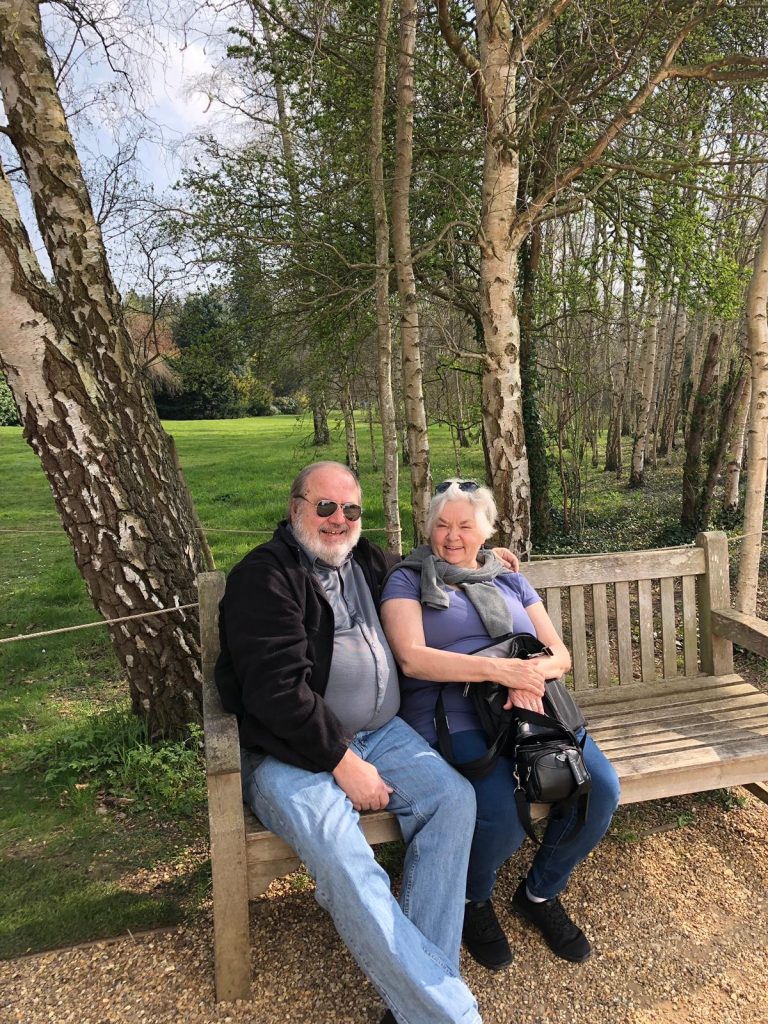
Dr. Brugh and Gary (her husband) at Anglesey Abbey in Cambridge, England
England
• Favorite color: Orange
• Nickname(s): Our Queen, Mom (including British version, Mum, on Mother’s Day).
• Astrology: Pisces Sun
• Advice: Practice solitude before you get here. There’s a lot of it here, and it takes some getting used to.
• Memory: Watching you all from the bridge and see you flow under me (punting) on the Cam.
• Growth: Improved toilet paper and paper towel management, though still a work in progress.
Demi Marshall
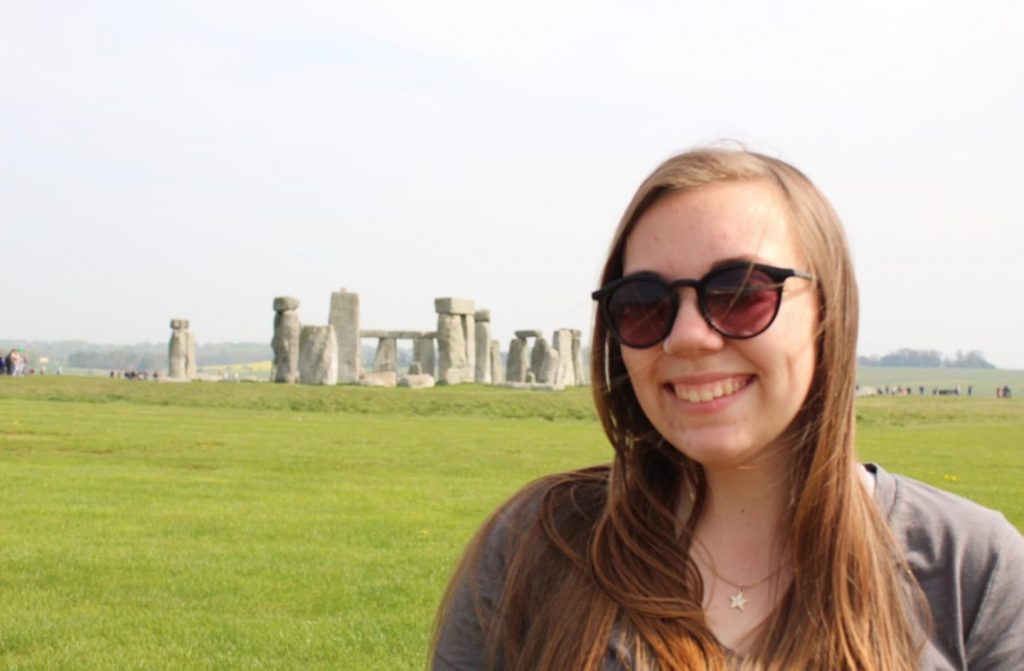
Demi at Stonehenge in Amesbury, England
• Favorite color: Yellow
• Nickname(s): Dem-Demz, Dung Beetle #1
• Enneagram Type: 3w4
• Astrology: Aquarius Sun
• Advice: Keep an open mind and take advantage of opportunities that present themselves. Make the most of your time here because it will go by SO much faster than you think.
• Memory: All my favorite memories are spontaneous plans with my housemates that I didn’t anticipate happening that day. They are always the most fun. I’ve found saying yes more than staying in really beneficial.”
• Growth: I think I have become a much more independent and somehow calm person. I thought I would suffer a lot with anxiety and depression while abroad, but this has really been one of the clearest points in my life. I have learned to blend with new people and also do things for myself that I never thought possible.
Jasmine Delara
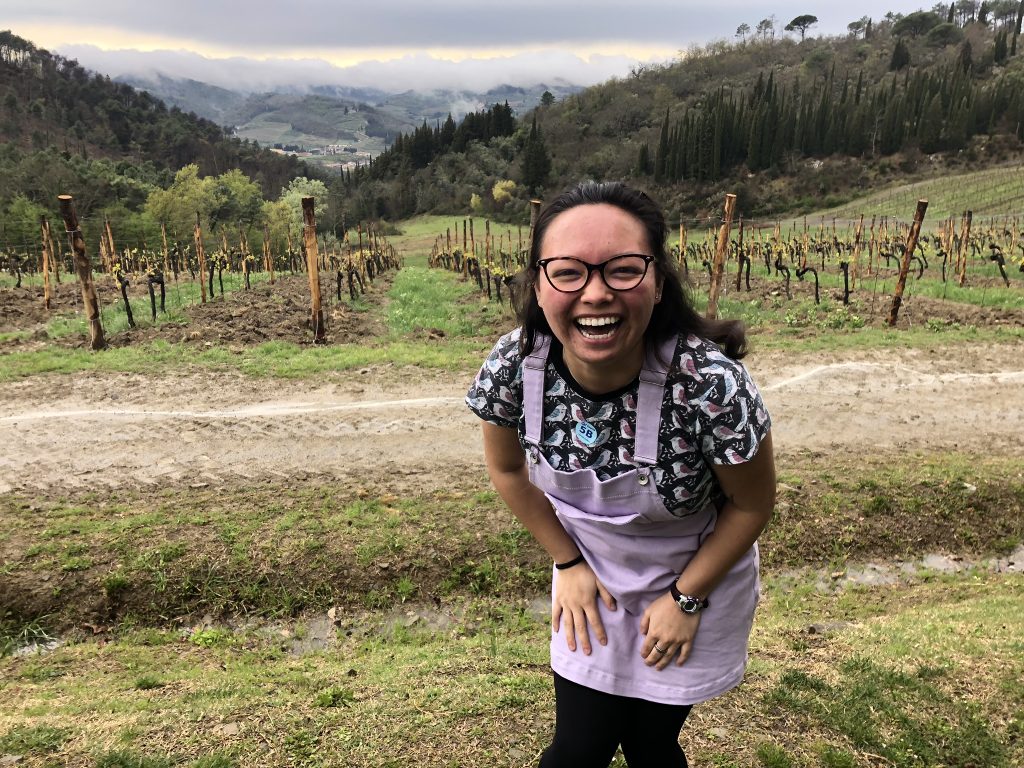
Jasmine in Tuscany, Italy
Tuscany, Italy
• Favorite color: Yellow
• Nickname(s): Mort, Jazz Hands, Jay-Z, Dung Beetle #2
• Enneagram Type: 2w3
• Astrology: Sagittarius Sun and Moon, Aquarius Rising
• Advice: The advice I would give to the next cohort or to anyone reading this, is to connect and create the community you want early in the semester and remember that relationships that you want to work will take continuous work. You get out what you put in and by building a community on understanding, forgiveness, compromise, and laughter you are working towards a really strong future.
• Memory: My favorite memory here in Cambridge has to be the weekly Common Meal dinners. Right from the beginning all of us in the house wanted to create a family-community feeling here in the house and a big setting for those bonds to be made was at Common Meal. I loved getting excited about what people were going to make that week or making others excited about what I was going to make that week. And then sitting down as a big family and sharing conversation to me really can’t be beat. It was always fun and it was always something I looked forward to and I will definitely miss it once I leave.
• Growth: I’ve grown in a multitude of ways, many of them being hard to describe. Most importantly I have grown in my faith, but not in the ways I was expecting to grow in my time here. I thought I was going to spend a lot of time in my Bible and grow in my one-on-one time with God in that way, but I found myself spending more time with him in nature on walks or while playing guitar. I have also found a new love for solitude and understanding its importance in reflection, growth, and understanding. Before this semester I would do almost anything to spend as little time as possible alone, and although I will still spend most of my time in community I will appreciate the time I have by myself.
Eric Wolfrum
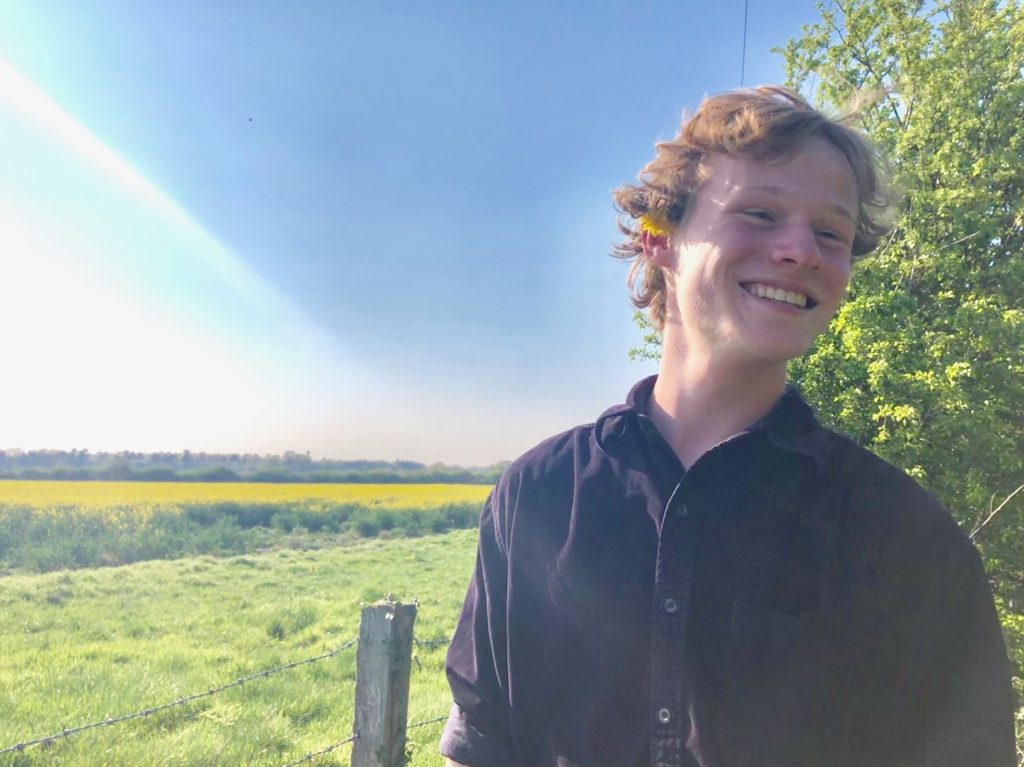
Eric in Cambridge, England
• Favorite color: Green
• Nickname(s): Mellie
• Enneagram Type: 9w8
• Astrology: Leo Sun
• Advice: You might have more free time than you are used to, but there is so much that’s going on in Cambridge— it’s just up to you to put yourself out there.
• Memory: Sitting by the canal in Amsterdam while reflecting on my past three months of being in Europe. Also, going on lots of hikes and long walks, and American Mondays!!
• Growth: I have learned that things usually work out in the end and that risks are worth taking. In addition, I learned how to be more comfortable with myself and learned that people are (generally) nice and welcoming wherever you go.
Nolan Filbert
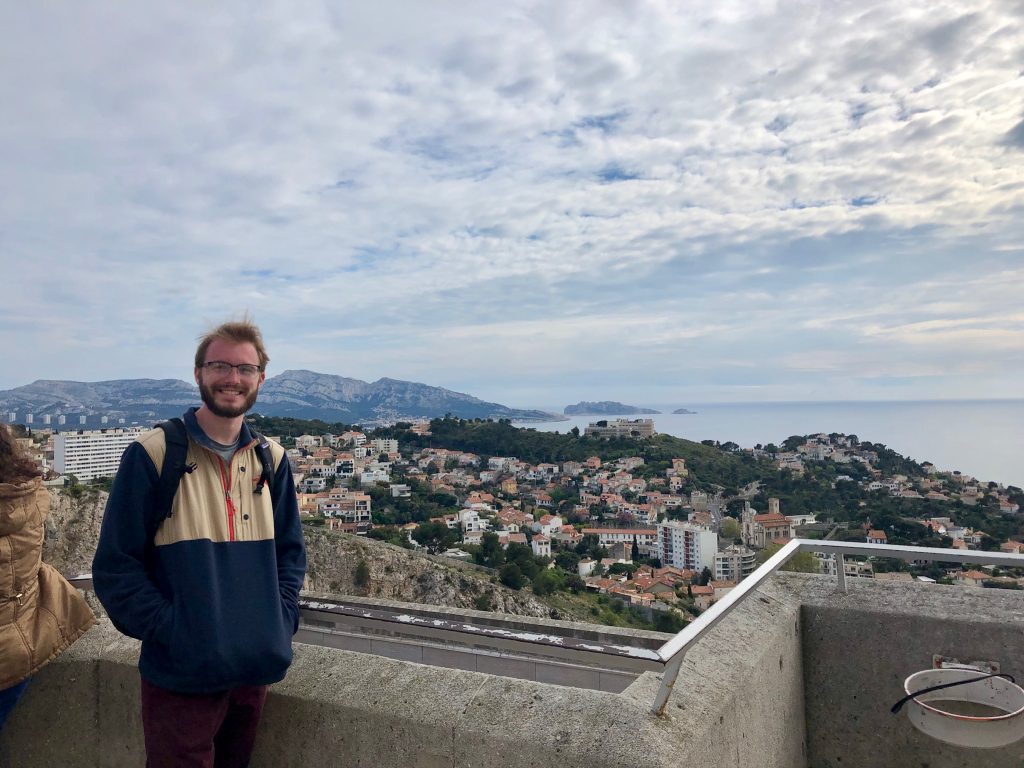
Nolan at the Notre-Dame de la Garde in Marseilles, France
• Favorite color: Green
• Nickname(s): Sweet Wedge, Shmehh, Noly-Bear
• Enneagram Type: 2w1
• Astrology: Taurus Sun, Pisces Moon
• Advice: Through all the entrances and exits in life, this program will be one of the best. My advice would be to come with no expectation of what it will be like but prepare to be amazed at the beautiful place that Cambridge is and the beautiful people you’ll live with. Take time to explore and find the green spaces to relax and the coffee shops to study in. Try to soak up the amount of history, culture, and music that is literally on every street and you won’t come close to being disappointed (hopefully). Lastly, your cohort will become your family, full of love and fun-filled memories that will last a lifetime.
• Memory: One hundred and fifty percent would be all the little places in Cambridge that we went to throughout the year to learn more about Cambridge with the greatest tour guide, Dr. Brugh. Of course seeing “As You Like It” in person and in the birthplace of Shakespeare was a favorite memory too. The games we played as a group are definitely up there too.
• Growth: The biggest thing I have learned while being here in Cambridge is that art is cool and I absolutely fell in love with it (Check out David Hockney for my favorite artist). (Go to the Prado Museum in Madrid and you won’t regret a millisecond of it) 🙂
Ellie Hackbath
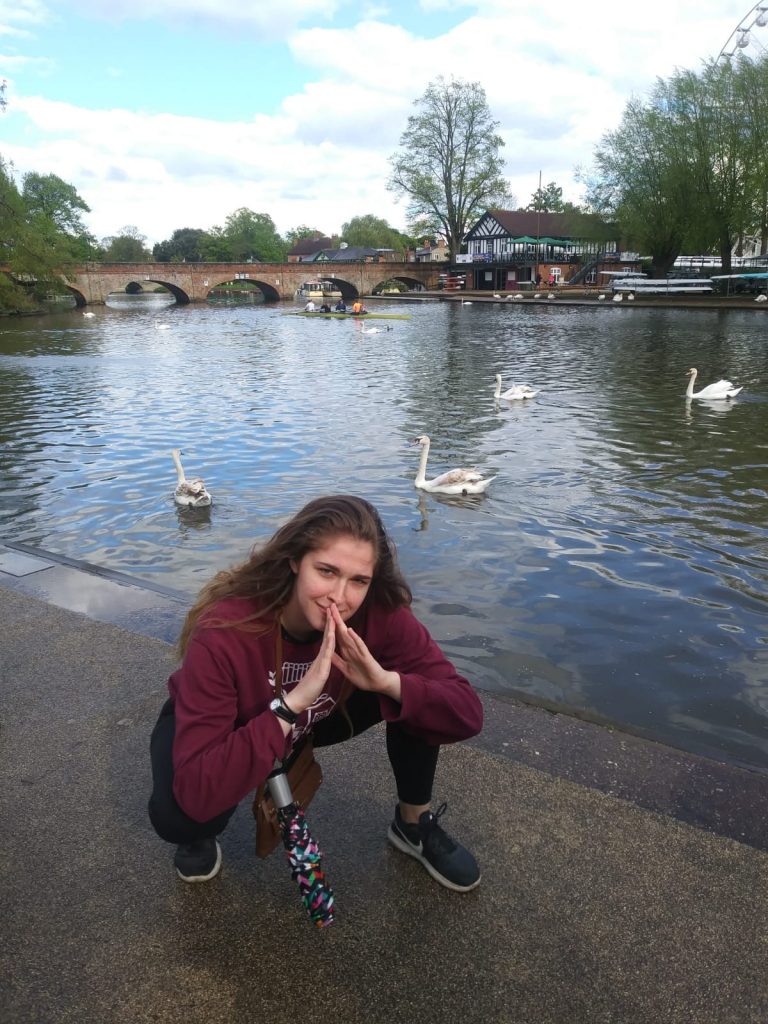
Ellie in Stratford upon Avon, England
• Favorite color: Blue
• Nicknames: Eleanor, Queen of the Night
• Enneagram Type: 9w1
• Astrology: Capricorn Sun, Libra Moon and Rising
• Advice: First: Don’t be afraid to travel because it’s easier than you think it is, and if you’re smart about it, it’s always a good experience— I haven’t had a bad one yet. Secondly: Don’t be worried to spend time at home because Cambridge is beautiful and everyone needs time to recuperate.
• Memory: My favorite memory in Cambridge was to see a play with Nolan at the Cambridge Arts Theater. And outside of Cambridge was when Demi, Bethany, and I went to Paris. We all sat on the floor of our Air BnB, ate baguettes and brie and drank wine— it was really fun.
• Growth: I’ve become more independent, self-assured, and less willing to take other people’s BS.
Eric Ruzanski
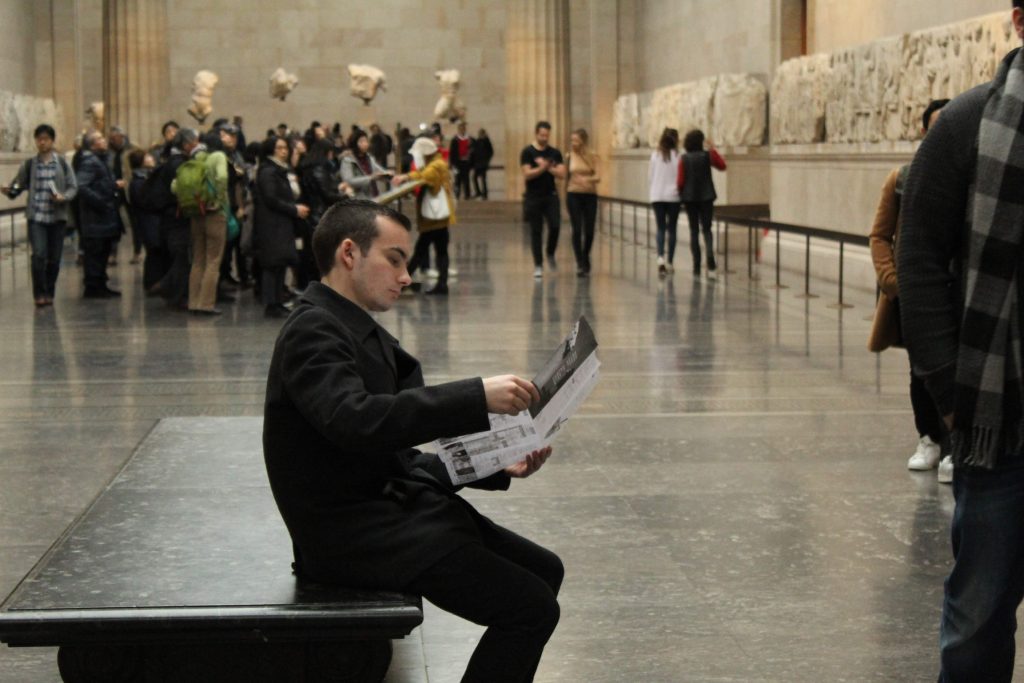
Eric at the British Museum in London, England
• Favorite color: Blue
• Nickname(s): Easy E, Weatherman, RaEric
• Astrology: Aries Sun
• Advice: Find a British topic, that be it science, literature, history, or whatever, and independently research that topic while you’re here. Go out of your way to visit places or do things related to the topic. If you love to learn, it’s a great way to enjoy and appreciate the time allotted in the United Kingdom. For me, this was Margaret Thatcher and BREXIT! I also visited a few places in Cambridge where big-name mathematical contributions came from. This town has so much to offer!
• Memory: Hanging out with the Valpo group at Castle St. Pub after our first British Life and Culture trip to London. Also, writing, researching, and equity trading at various pubs and coffee shops.
• Growth: I have grown to be patient with slow-er European Wi-Fi… 😉
Camden Heinisch
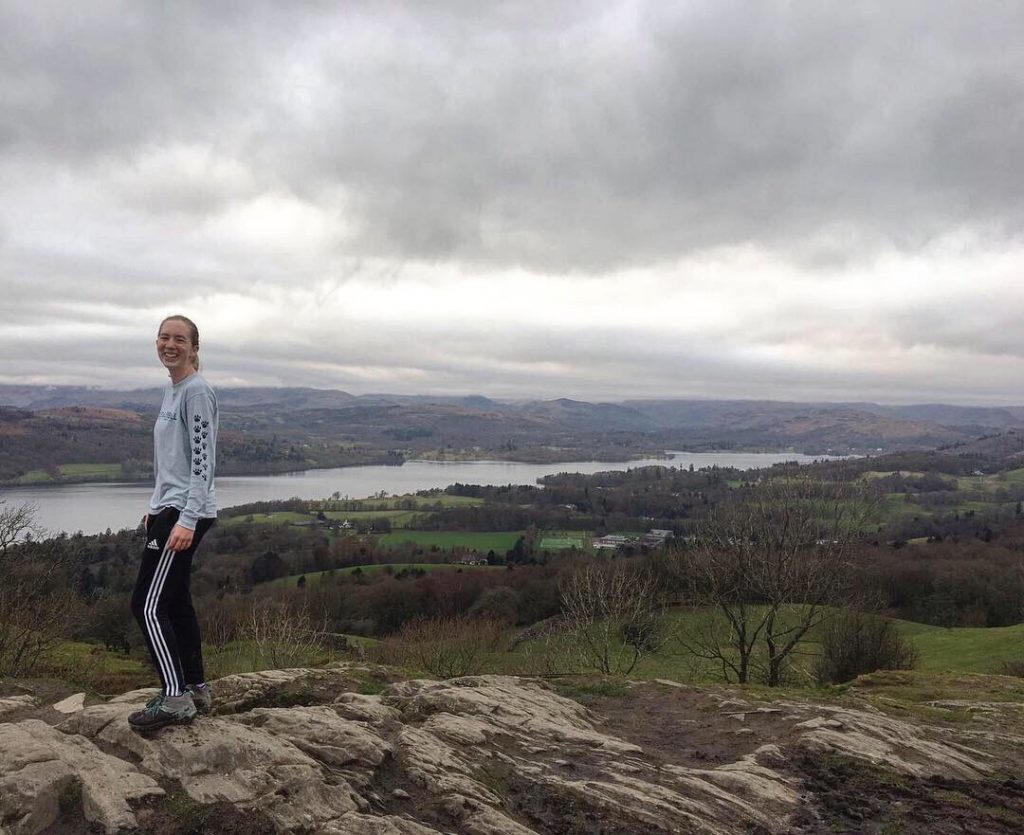
Cami in Windermere in the Lake District, England
• Favorite color: Purple
• Nickname(s): Cami
• Astrology: Cancer Sun
• Advice: Your time here is what you make of it, and there are ways to get involved in Cambridge. Personally, I did this through sports and Christianity. And experiment! I experimented with my fashion here (partly out of necessity because I didn’t bring a lot of things), and it will definitely come back to the States. Own the fact that you’re American. People won’t look down on you just because of your accent. They may grossly impersonate your accent and stereotype you (my personal favorite was being called a ‘yee-haw’ and seeing the accompanying handshake) but it’s all in good fun, trust me 🙂 The Brits that I have met here have an amazing sense of humor, and they can dish it as well as take it.
• Memory: Going to a local pub after Bible study one Tuesday night. It had been a really rough week, but everyone that I went with was just so amazing and fun to be around… It was hard not to feel the same as they did walking out of there.
• Growth: Fashion, emotion, faith, (but mostly faith). The Brits I’ve surrounded myself with here are exemplary Christians in a way I’ve never seen masses of people being, and it really pushed me to take a hard look at myself and how I was acting and going along in my faith. Time will only tell if the changes I experienced here carry over to the States.
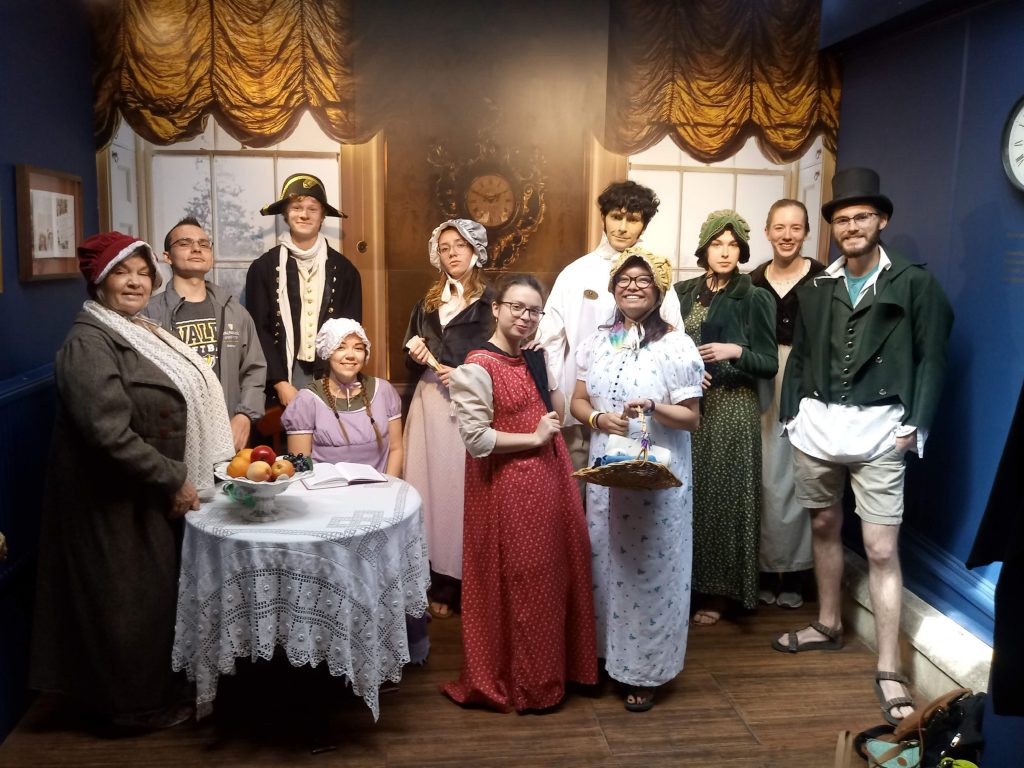
Cohort #102 at the Jane Austen Center in Bath, England
